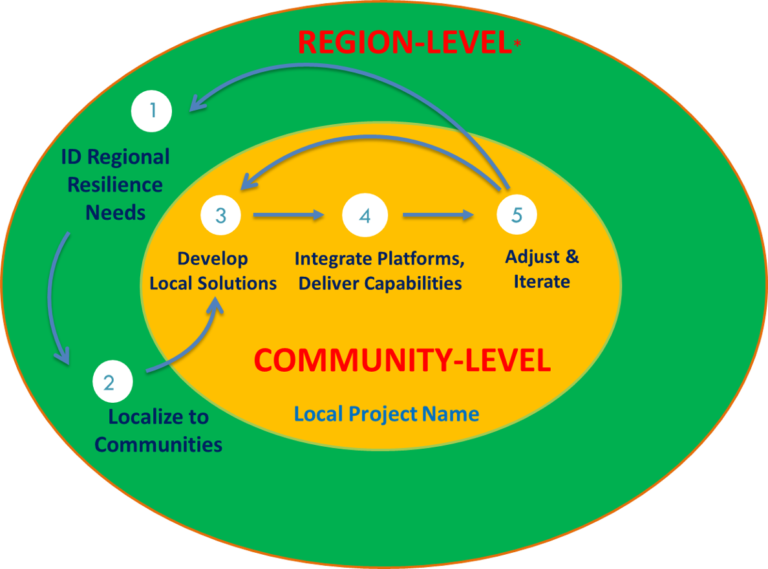George Mason University (GMU) established a Center for Resilient and Sustainable Communities (C-RASC) in 2019. Its vision is that communities world-wide can create life-changing social and economic opportunities through locally led, bottom-up resilience and sustainability initiatives supported by cross-cutting approaches and effective, replicable models. It oversees two complementary initiatives: Collaborative Community Resilience (CCR) and the global STAR-TIDES knowledge-sharing network. These integrate public-private, whole-of-government, and trans-national approaches with diverse technologies and input from practitioners with field experience.
Local solutions will be developed by coordinating five activities that normally would be stovepiped:
C-RASC projects are developed in 5 parts:
-
Community Focus: Each project begins by listening as the community describes its needs. Communities often are effective ways to focus resilience building–the nation may be too big, and the family too small.
-
Knowledge Sharing: Leveraging the several thousand nodes of the STAR-TIDES network,
-
Innovative Economics: If free and competitive markets are not working,
-
Platform Integration: Across several inter-dependent infrastructures (or “platforms”), as shown in the wheel on the STAR-TIDES page
-
Research and Teaching: Especially in trans-disciplinary areas, to bridge requirements, research and realization.
C-RASC researchers also can support real world events as appropriate, such as disaster response or crisis mitigation. C-RASC has a broad overall focus, but each C-RASC project has a specific name, e.g. “Appalachia Advancing,” that emphasizes the interests of the community in question. A detailed engagement template guides each step to maximize the prospects for success. This is summarized in the graphic below, showing the needs first are identified at regional levels, and then localized to communities, where they’re carried out, providing feedback in the process.

To Elements page
